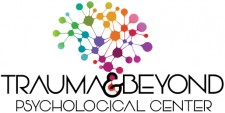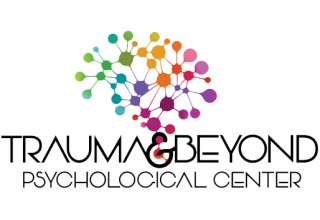
SHERMAN OAKS, Calif., May 24, 2018 (Newswire.com) - Trauma and Beyond Psychological Center® has launched an outpatient program for Psychological Trauma in Sherman Oaks, CA. Founded by Dr. Joanne Barron, PsyD, and Dr. Lynne Friedman-Gell, Ph.D., this center will be offering trauma treatment in Los Angeles to adults who are suffering from both shock and development trauma. “There is a great need for trauma-informed psychotherapy as discoveries in neuroscience have shown us how trauma is stored differently than ordinary memories and how trauma is at the root of many psychological conditions,” states Dr. Barron. Together with her partner Dr. Friedman-Gell, a psychologist with advanced training in trauma, their mission is to provide treatment and education to patients and to the public.
“Trauma must be treated from both a top down and bottom up perspective,” states Dr. Friedman-Gell. “It’s not enough to treat the mind, we must use interventions that work with the body and the nervous system as well.“
It's not enough to treat the mind, we must use interventions that work with the body and the nervous system as well.
Dr. Lynne Friedman-Gell, Founder, Trauma and Beyond
Both doctors point to the Adverse Childhood Events (ACE) Study. This study commissioned by Kaiser found that children growing up in homes with problems like addiction, domestic violence, neglect, divorce, etc. experienced a much higher level of both physical and mental health problems as adults. They also point to studies noting an increased incidence of childhood trauma, including depression, substance abuse, personality disorders and mood disorders in the population. Mental health treatment must be available and must address the deep-seated trauma that results in growing up in adverse conditions.
Childhood or developmental trauma occurs at critical periods in human development, often in relationship to caregivers. Examples of this type of trauma might be children that watch a mother being physically abused or children that are beaten or molested or who have a parent that is frightened or frightening. Those children too whose parents have mental illness or substance problems often feel alone and helpless with nowhere to go for support. Even children who may have parents who are absent because of work or illness may experience feelings of being alone or lost. This kind of trauma has long lasting after effects. In order to survive, children employ innate survival strategies: fight, flight, or freeze. When these survival instincts are activated over and over again, the nervous system becomes chronically dysregulated. Dysregulation can present as panic, anxiety, anger, paranoia or hypervigilance or on the other end of the spectrum as depression, numbness, isolation or dissociation. These patterns of dysregulation often last in adulthood presenting mental health issues, relationship problems, behavioral problems, and physical problems.
Shock Trauma is the kind of trauma that is experienced after a life-threatening event. This could include car accidents, natural disasters, rape, or physical illness. Police officers, veterans and others who are involved in combat may develop Post Traumatic Stress Syndrome (PTSD) as can victims of rape or violence. This too can leave the nervous system dysregulated and lead to symptoms of flashbacks, hypervigilance, nightmares, avoidance, heightened reactions, anxiety or depression.
Treatment for trauma must use a stage based approach with the first priority being safety. People should be mindful of and avoid retraumatizing patients by having them become too focused on the events themselves. Instead, look at how the trauma is activated in the present through bodily feelings or emotional states. Focusing on resources to regulate the nervous system in the present will help clients to feel more control and less like a prisoner of their body based or feeling states.
At Trauma and Beyond Psychological Center®, this highly-trained team of trauma experts will collaborate and guide clients through this healing process with an integrated approach using state of the artwork trauma treatments.
For more information about trauma treatments, or to make a press inquiry, please call (818) 351-3511.
Source: Trauma and Beyond Psychological Center
Share:




